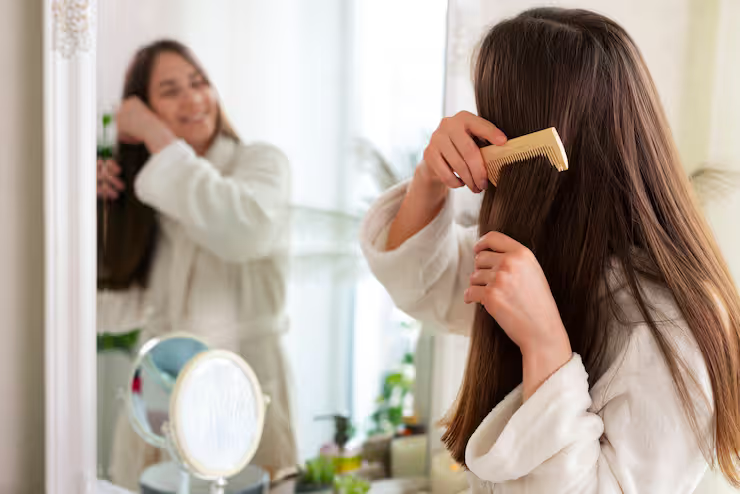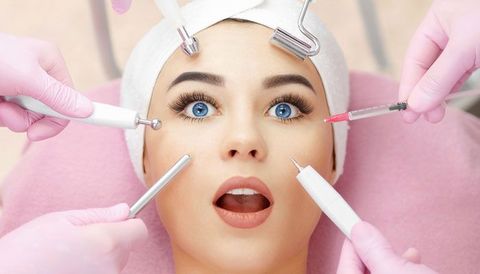The idea of naturally growing hair at home centers around nurturing the scalp, improving diet, and using safe, plant-based practices. This approach reduces exposure to harsh chemicals while promoting sustainable self-care routines.

Importance – Who it affects and what it solves
Natural hair growth is not just a cosmetic concern—it has emotional, cultural, and even health implications.
-
For individuals facing hair thinning or hair fall: Natural remedies offer affordable and safe solutions without depending on strong medications.
-
For people with sensitive skin or scalp conditions: Chemical-free options reduce the risk of irritation and allergic reactions.
-
For eco-conscious consumers: Homemade remedies and plant-based oils align with sustainable and environmentally friendly practices.
-
For long-term wellness: Healthy hair often reflects overall well-being, including diet, hydration, and lifestyle.
By focusing on natural methods, people can build routines that improve hair health while avoiding unnecessary expenses.
Recent Updates – New trends in natural hair care
Over the past year, several shifts have been seen in natural hair growth practices:
-
Rise of DIY hair masks (2024–2025): Social media platforms like TikTok and Instagram have popularized homemade blends of aloe vera, onion juice, and fenugreek for hair growth.
-
Growing demand for cold-pressed oils: Oils such as argan, coconut, castor, and rosemary oil have gained popularity due to their nourishing and strengthening benefits.
-
Focus on scalp health: Dermatologists emphasize scalp exfoliation and gentle massages as key to boosting circulation and improving hair density.
-
Scientific validation: Research continues to study the effectiveness of herbal ingredients like amla (Indian gooseberry), hibiscus, and green tea extracts for supporting hair regrowth.
Laws or Policies – Regulations around hair care products
While natural remedies prepared at home are not strictly regulated, commercial products marketed for hair growth are subject to health and safety guidelines.
-
FDA (U.S.): The Food and Drug Administration regulates cosmetic labeling and claims. Companies cannot advertise unproven “miracle hair growth” solutions.
-
EU Cosmetic Regulations: Ingredients must comply with safety standards and cannot contain banned substances.
-
India’s AYUSH Ministry: Herbal and Ayurvedic hair oils or remedies must follow traditional medicine standards.
These regulations ensure that marketed products are safe and not misleading, but for home remedies, individuals should still research ingredients and practice caution.
Tools and Resources – Helpful ways to support hair growth
Growing hair naturally at home is easier when supported with structured tools and resources.
Digital Tools & Apps
-
YouTube tutorials – Step-by-step guides for DIY masks and scalp massages.
-
MyFitnessPal or Cronometer – Track nutrition to ensure you are consuming vitamins like Biotin, Vitamin E, and Omega-3s.
-
Habit tracker apps – Build consistency with hair oiling, hydration, and sleep schedules.
Home-Based Resources
-
Natural oils: Coconut, castor, almond, rosemary.
-
Kitchen remedies: Onion juice, fenugreek seeds, aloe vera.
-
Massage tools: Wooden scalp massagers or handheld rollers to improve circulation.
Professional Resources
-
Dermatology consultations (online & offline).
-
Hair care community forums where people share safe practices and experiences.
FAQs – Clear answers for common questions
Q1: How long does it take to see results from natural remedies?
Natural methods typically take 3–6 months to show visible improvements, depending on hair type, lifestyle, and consistency of care.
Q2: Can diet really affect hair growth?
Yes. A diet rich in protein, vitamins (Biotin, Vitamin D, Vitamin E), iron, and omega-3 fatty acids plays a crucial role in maintaining strong, healthy hair.
Q3: Are natural oils better than commercial hair serums?
Natural oils provide nourishment without harsh chemicals. However, effectiveness varies by individual, and some people may combine oils with dermatologist-recommended products.
Q4: Is it safe to try all DIY remedies found online?
Not always. Some ingredients (like lemon juice in excess) can cause dryness. Always do a patch test before applying a new remedy to your scalp.
Q5: Can stress impact hair growth?
Yes. Chronic stress may trigger hair shedding (telogen effluvium). Relaxation practices such as meditation, exercise, and adequate sleep can support hair health.
Table – Key natural ingredients and their benefits
| Natural Ingredient | Benefit for Hair Growth | Common Use at Home |
|---|---|---|
| Coconut Oil | Strengthens strands, reduces protein loss | Massaging scalp 2–3 times a week |
| Castor Oil | Promotes thickness and density | Mixed with coconut oil, left overnight |
| Aloe Vera | Soothes scalp, reduces dandruff | Applied directly as gel or mask |
| Onion Juice | Stimulates hair follicles | Applied 20 minutes before shampoo |
| Fenugreek Seeds | Improves shine, reduces hair fall | Soaked overnight and ground into paste |
Final thoughts
Naturally growing hair at home is about patience, consistency, and holistic care. While there is no overnight solution, adopting a healthy lifestyle, using natural oils and remedies, and maintaining scalp hygiene can significantly support long-term growth.
The key is to stay realistic—results vary from person to person, but a balanced combination of nutrition, gentle care, and natural remedies provides a safe and sustainable path to healthier hair.





